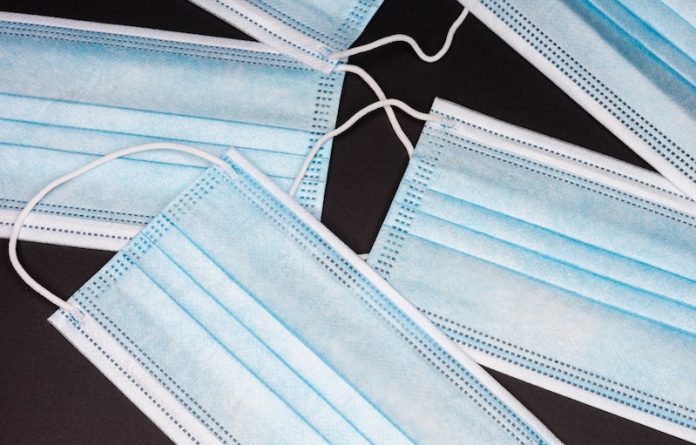
Throughout the COVID-19 pandemic and when maximum protection is needed against air-born infections, the N95 respirator has remained the gold standard of personal protective equipment.
However, it is also much more difficult to produce and obtain than a standard surgical mask.
Scientists from Michigan Medicine found that a simple modification to a surgical mask using rubber bands can improve its protective seal against particle exposure to the level of an N95 respirator.
To achieve N95-level protection, the respirators should demonstrate a minimum score of 100 on a standardized battery of tests – the Occupational Safety and Health Administration’s passing threshold – against the passage of particles that would potentially expose an individual to disease.
Standard surgical masks are not as protective because they don’t seal around the wearer’s face, allowing particles to bypass the filter peripherally.
In the study, the team tested standard surgical masks modified with two 8-inch rubber bands over the crown of the subject’s head, bridge of the nose, around the cheeks, and under the chin within the boundaries of the mask.
The team found that 31 of the subjects, or 78%, had modified masks that passed a fit test with a score of greater than 100.
The passing masks scored an average of 151, a much better fit than an unmodified surgical mask score of 3.8 but lower than a properly fitted N95 mask’s score of 199.
By the last day of investigation, all of the modified masks passed the N95 threshold, suggesting that greater experience with the banding improved fit and performance.
The team says this easy modification could address N95 respirator shortages worldwide and provide health care workers and individuals in under-resourced regions.
While not a vaccine, this approach emphasizes prevention rather than treatment.
It has the potential to save lives and preserve wellness. Its effect will last as long as there are respiratory diseases and PPE demand exceeds supply. It is immediately impactful and sustainable, yet simple and cheap.
If you care about wellness, please read studies about an unexpected way to recycle disposable masks, and this face mask can capture and deactivate the COVID-19 virus.
For more information about COVID, please see recent studies about the cause of COVID vaccine resistance, and results showing people over 50s may develop this disease after COVID-19.
The research was published in PLOS ONE and conducted by Jaimo Ahn et al.
Copyright © 2022 Knowridge Science Report. All rights reserved.



